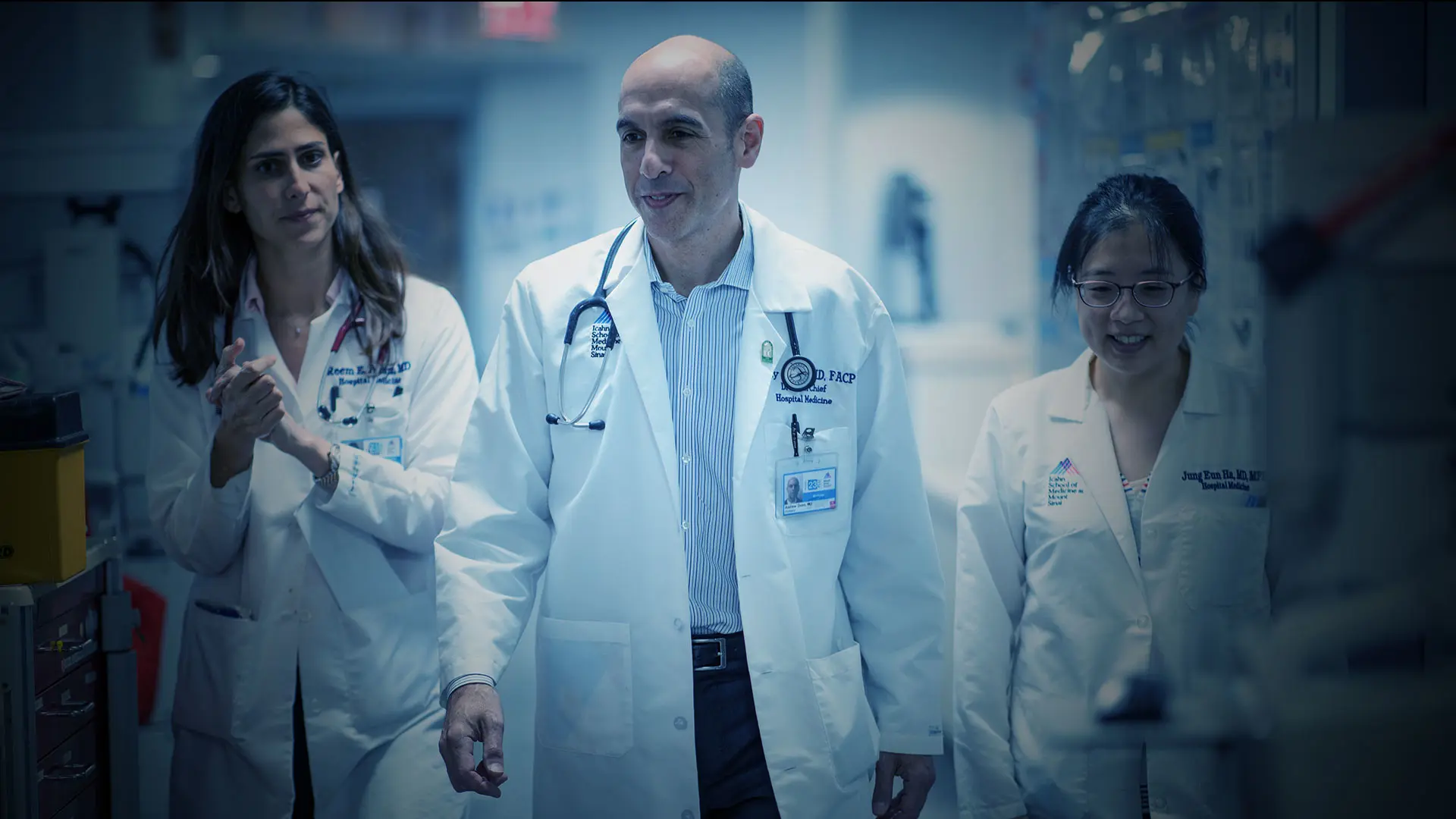Related Article
As if the first year of medical school isn’t hectic enough, a small group of students is further enriching its learning experience through a unique program that’s improving the quality and cost of health care, at Mount Sinai and even beyond.
They are part of the Department of Medicine’s Student High Value Care Initiative, which enables around 20 trainees, including master’s and nursing students as well as those in the MD program, to team up each year with a junior faculty member to create, implement, and monitor projects designed to improve patient care. Some of these efforts gain national exposure through well-attended conferences and publication in academic journals.
“Educating trainees to practice high-value care is now recognized as critical to systemwide change,” says Anne Linker, MD, Assistant Professor of Medicine (Hospital Medicine) at the Icahn School of Medicine at Mount Sinai, and Co-Director of the Student High Value Care Initiative. “Our program gives students the chance to see the health system as something that is changeable and open to improvement, and our hope is they’ll carry that valuable lesson to the remainder of their training and, eventually, into their clinical careers.”
As part of the eight-year-old program, students learn the fundamentals of high-value care (HVC) and design an improvement project during a six-month curriculum led by Dr. Linker and Co-Director Reem Aoun, MD, Assistant Professor of Medicine (Hospital Medicine) at Icahn Mount Sinai. This introduction is followed by six months of implementation in which students are divided into teams and collaborate with a faculty member, who may also serve as a mentor, as they jointly pursue an HVC project. Past and future initiatives have included interventions to reduce unnecessary diagnostic tests, mobilize patients in ways that reduce falls and injury, and decrease overuse of continuous intravenous fluids.
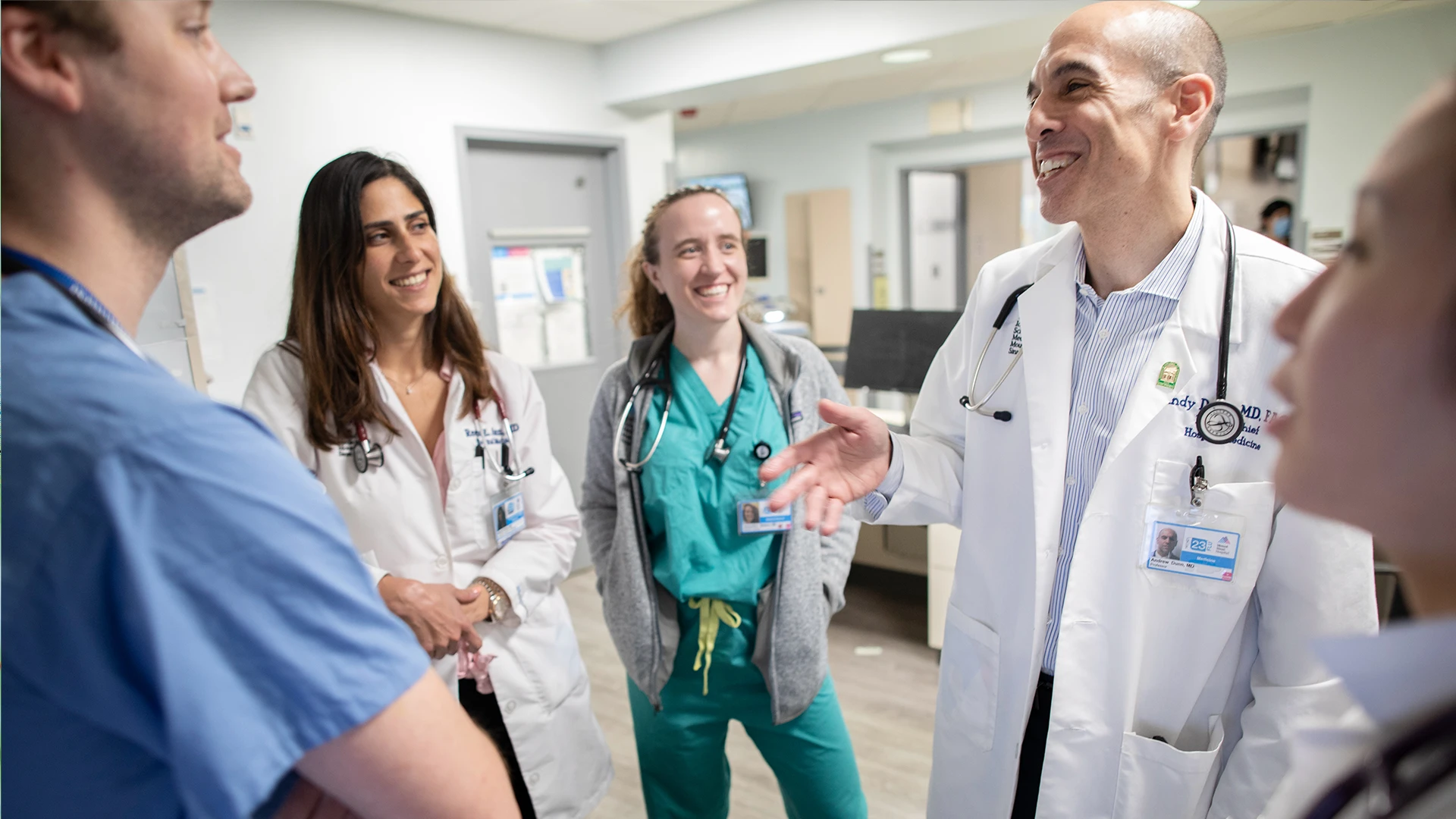
Reem Aoun, MD, second from left, and Andrew Dunn, MD, Chief of the Division of Hospital Medicine, second from right, debrief with new residents as part of the Student High Value Care Initiative.
The success of these efforts is reflected in the steady growth of the Student High Value Care Initiative. “It’s an interesting program that has grown organically over time, driven in large part by the realization that we could be effective in areas outside just hospital medicine,” explains Dr. Linker, who has led a variety of projects to improve the value and quality of patient care at The Mount Sinai Hospital. “That mindset has led us to create partnerships with other groups, including Emergency Medicine, Obstetrics and Gynecology, Infectious Disease, and Primary Care.”
One way the program gets a chance to truly shine is through its annual “Pitch Day.” This event, held in early December, allows each team to present its project in a “Shark Tank”-like setting to fellow medical students, residents, faculty, and hospital leaders. In the audience are four judges who provide valuable feedback on project planning and implementation strategy.
“It’s really exciting to see the enthusiasm and positivity this course generates,” notes Dr. Aoun, who was a project mentor before becoming Co-Director last year. She underscores how the initiative has grown in influence and visibility by citing Andrew Dunn, MD, Chief of the Division of Hospital Medicine, who has called it “one of the most important programs in our division.”
One example of the high-value care projects that have won critical praise is a sleep hygiene intervention to improve sleep quality for hospitalized patients. Aware of how poor sleep can contribute to adverse health outcomes, first-year medical students developed a nonpharmacologic hygiene protocol that included options such as turning lights off, eye masks, earplugs, lavender-scented pads, and relaxing music, all explained to the patient using a structured script. Front-line champions were also identified to aid with implementation. As described in The Joint Commission Journal on Quality and Patient Safety, the team’s study of 931 patients reported improved sleep depth, decreased awakenings after sleep onset, and enhanced quiet at night.
Another study in the same journal outlined a program initiated by first-year students to improve physician adherence to prescribing guidelines for patients discharged on opioids. During biweekly sessions held in resident lounges over donuts and coffee, the students opened a dialogue with physicians around best-practice recommendations from the Society of Hospital Medicine and the Centers for Disease Control and Prevention. Favorable outcomes from the program included a reduction in opioid prescriptions longer than seven days, increases in post-discharge appointments, and documentation of opioid prescription histories.
“We’re proud of how students have repeatedly used their creativity and innovation to benefit the quality of care for our patients,” emphasizes Dr. Linker. “We typically launch three new projects a year, and the fact so many have achieved statistically significant results speaks volumes about the ongoing success of the Student High Value Care Initiative.”
Featured Faculty and Division Leadership
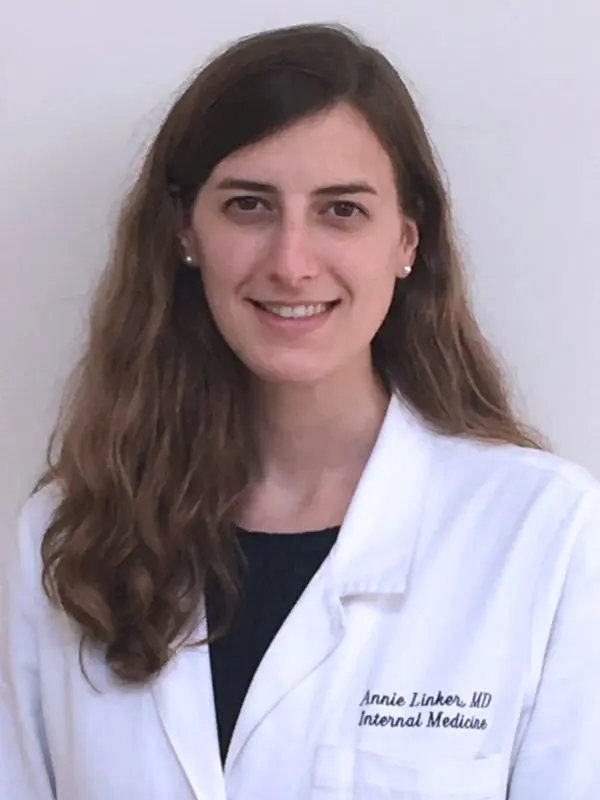
Anne Linker, MD
Assistant Professor of Medicine (Hospital Medicine)
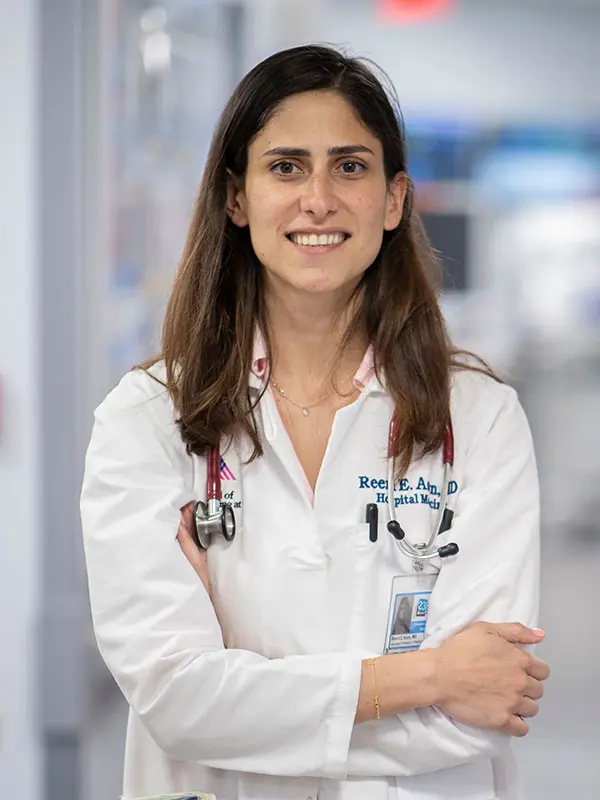
Reem Aoun, MD
Assistant Professor of Medicine (Hospital Medicine)
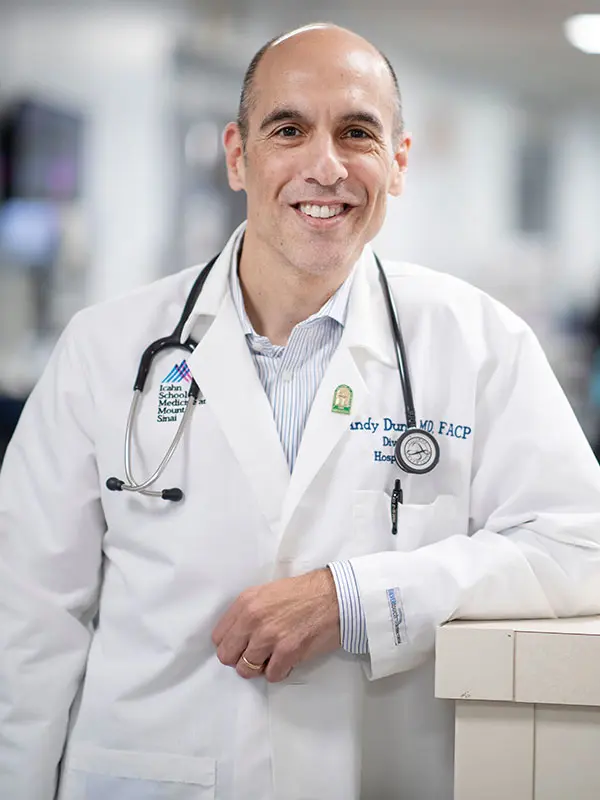
Andrew Dunn, MD
Professor of Medicine (Hospital Medicine); Chief, Division of Hospital Medicine
